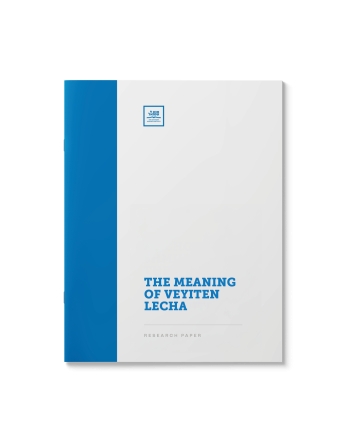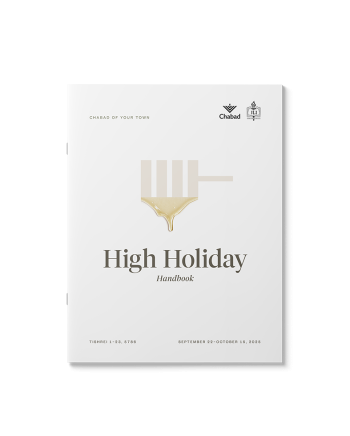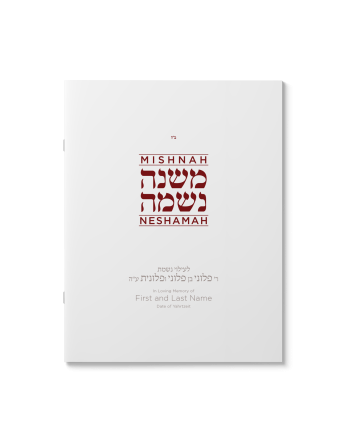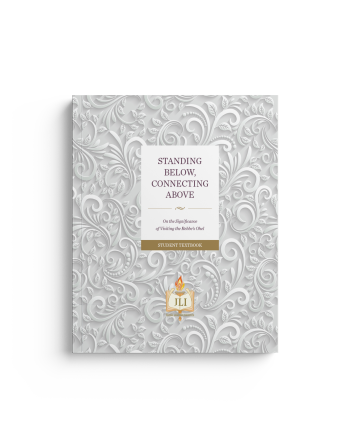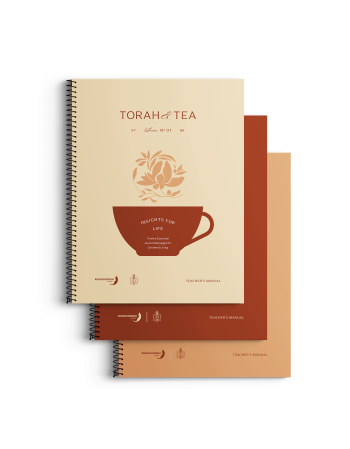-
Decisions of Fate
Decisions of Fate: Your Jewish Compass for Navigating Questions of Medical Ethics
Explore the guiding Jewish values that help inform choices on common medical questions.
This course will equip participants with the tools to chart a path through four areas of medical ethics: experimental treatments, extending life, pregnancy questions, and caring for a body.
Gain an enriching perspective on how the Jewish ethical tradition helps us confidently navigate fateful decisions.
-
Decisions of Fate – Student Textbook $20.00
Advice for Life – Student Book
Full cases of 26 Books will ship faster
-
Decoding the Talmud
Enter the intricate world of the Talmud: the monumental classic that has defined Jewish learning for centuries. Join this six-week course from the Rohr Jewish Learning Institute to discover the Talmud, its history, authors, and significance—and experience it for yourself.
-
Decoding the Talmud – Student Textbook $20.00
Decoding the Talmud – Student Book
Full cases of 20 Books will ship faster
-
Did Lot Pray to the Angels? $39.00
The Biblical account of the destruction of Sedom raises many
questions. Amongst them: Why does the Torah imply that the angels defied G-d’s wishes by acting independently? Did Lot in fact direct his prayers to the angels? Was
his defense of the inhabitants of Tzoar that much better than Avraham’s
arguments to spare Sedom? -
Different Strokes for Different Folks $39.00
The distinction between Jew and Gentile has often been
misunderstood and used to incite hate. This paper explores the difference between Jews and Gentiles in Jewish law, and its impact on modern-day living. -
Dilemma of the Dishes $39.00
Your hostess has labored to prepare a tongue tantalizing gourmet dinner, but alas – her fine china dishes were never ritually purified by immersion in a Mikvah. How do you navigate this delicate situation?
-
Do Lifestyles Have Alternatives? [New!] $39.00
Since the genesis of humanity, the family unit has comprised of a man and woman – the formula for procreation. There are, however, some who struggle with traditional orientations that depart from this standard.
Should this issue be cast as merely a matter of human rights? What may be a healthy balance between compassion and adherence to Jewish law?
A collection of responses and essays by contemporary Rabbinic voices.
Related: Gender Identities -
Do The Right Thing: Family Royalty
A social-learning course where students grapple with case studies and texts, with the option for the instructor to serve more as a moderator than instructor.
-
Do The Right Thing: Pardon Me
A social-learning course where students grapple with case studies and texts, with the option for the instructor to serve more as a moderator than instructor.
-
Do Winds of Change Blow in Shul? $39.00
In Jewish practice, adopted customs are as binding as statutory law.
To what extent must a shul and a community maintain their customs?
When, if ever, may traditions be changed?
-
Does Brushing Teeth Brush over Shabbos? $39.00
Brushing teeth triggers various halachic concerns about the violation of Shabbat. This paper deconstructs the practices of oral hygiene to examine if there are issues of chovel, schita, uvdin d’chol and memareach.
-
Don’t Ask, Don’t Tell: Non-Orthodox Jews and Shabbat Observance $75.00
Inviting non-Shomrei Shabbat to attend Shul or meals at your
home is often also an invitation for them to drive on Shabbat. What are the
laws of this overlooked yet critical issue? Do the ends ever justify the means?
How can we balance our love for our fellow with our love for halacha? -
Dots and Squiggles $39.00
Explore the origins of Taamei HaMikra and discover when and where
unconventional trop is applied. This paper also includes a discussion of the
interplay between dikduk and trop. -
Dust and Ashes: The Conflict Between Burial and Cremation $39.00
Why reducing the sanctuary of the soul to a pound of ashes is an unforgivable sin.
-
Dynamics of Dispute $39.00
The Talmud describes an instance where Rava appears to have completely dismantled a series of laws proposed by Rabbi Shimon bar Yochai. When may an Amora dispute a Tanna? An in-depth review.




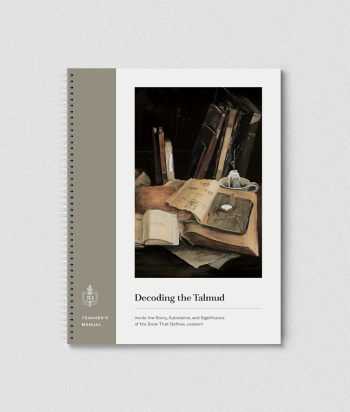


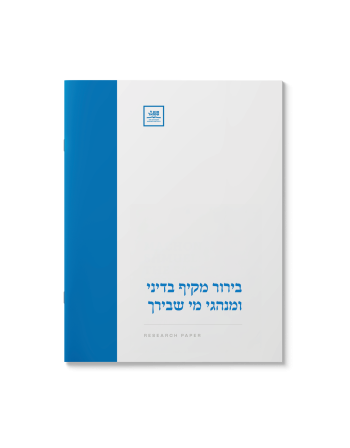

![Do Lifestyles Have Alternatives? [New!]](https://catalog.myjli.com/wp-content/uploads/2025/05/MSDLHA-350x448.png)


